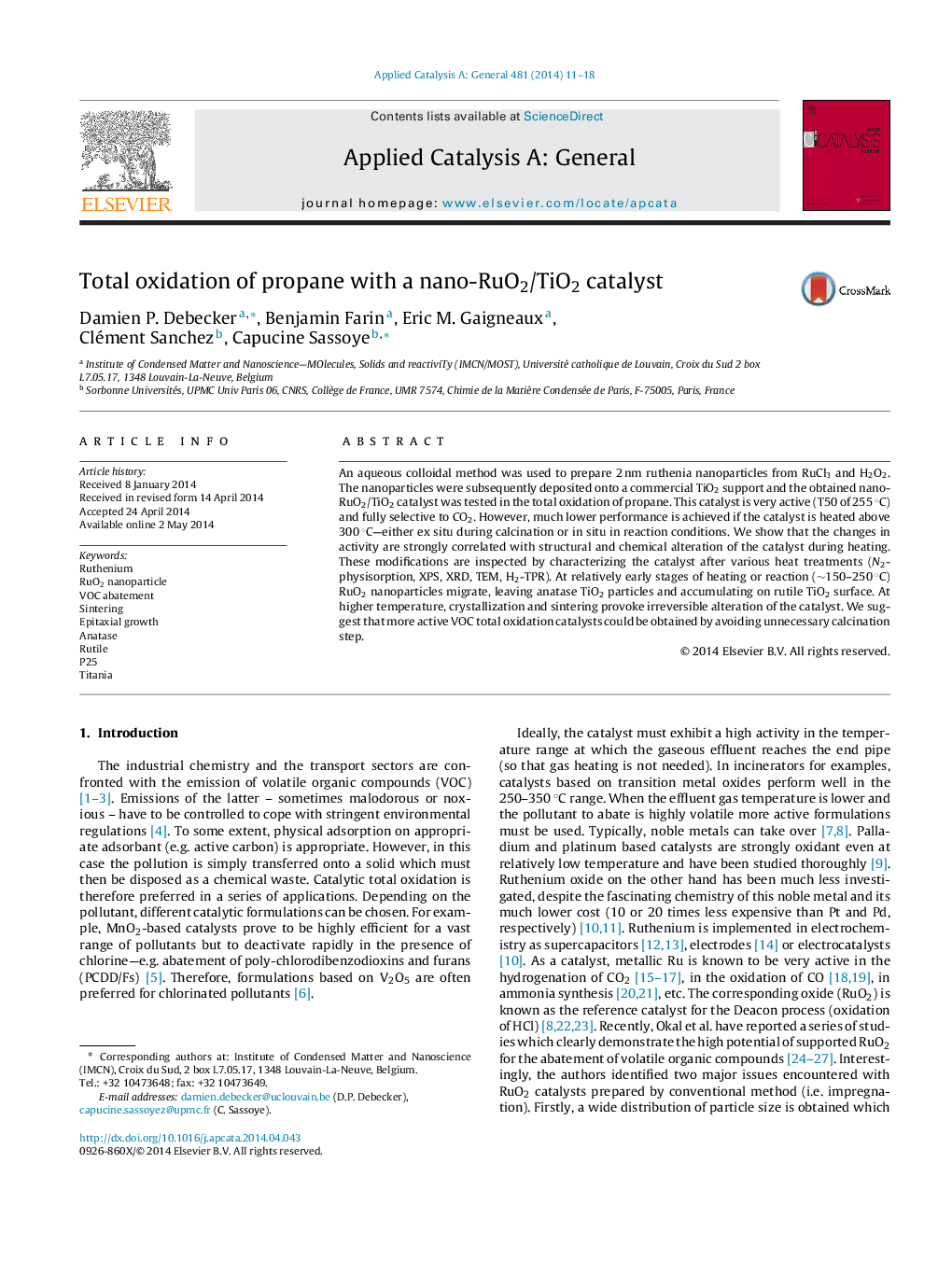| Article ID | Journal | Published Year | Pages | File Type |
|---|---|---|---|---|
| 39871 | Applied Catalysis A: General | 2014 | 8 Pages |
•TiO2 supported RuO2 nanoparticles prepared by a green colloidal method.•Nano-RuO2/TiO2 catalyst highly efficient in propane total oxidation.•Activity higher if the catalyst is not calcined.•Migration of RuO2 towards rutile titania followed by sintering.
An aqueous colloidal method was used to prepare 2 nm ruthenia nanoparticles from RuCl3 and H2O2. The nanoparticles were subsequently deposited onto a commercial TiO2 support and the obtained nano-RuO2/TiO2 catalyst was tested in the total oxidation of propane. This catalyst is very active (T50 of 255 °C) and fully selective to CO2. However, much lower performance is achieved if the catalyst is heated above 300 °C—either ex situ during calcination or in situ in reaction conditions. We show that the changes in activity are strongly correlated with structural and chemical alteration of the catalyst during heating. These modifications are inspected by characterizing the catalyst after various heat treatments (N2-physisorption, XPS, XRD, TEM, H2-TPR). At relatively early stages of heating or reaction (∼150–250 °C) RuO2 nanoparticles migrate, leaving anatase TiO2 particles and accumulating on rutile TiO2 surface. At higher temperature, crystallization and sintering provoke irreversible alteration of the catalyst. We suggest that more active VOC total oxidation catalysts could be obtained by avoiding unnecessary calcination step.
Graphical abstractFigure optionsDownload full-size imageDownload high-quality image (169 K)Download as PowerPoint slide
